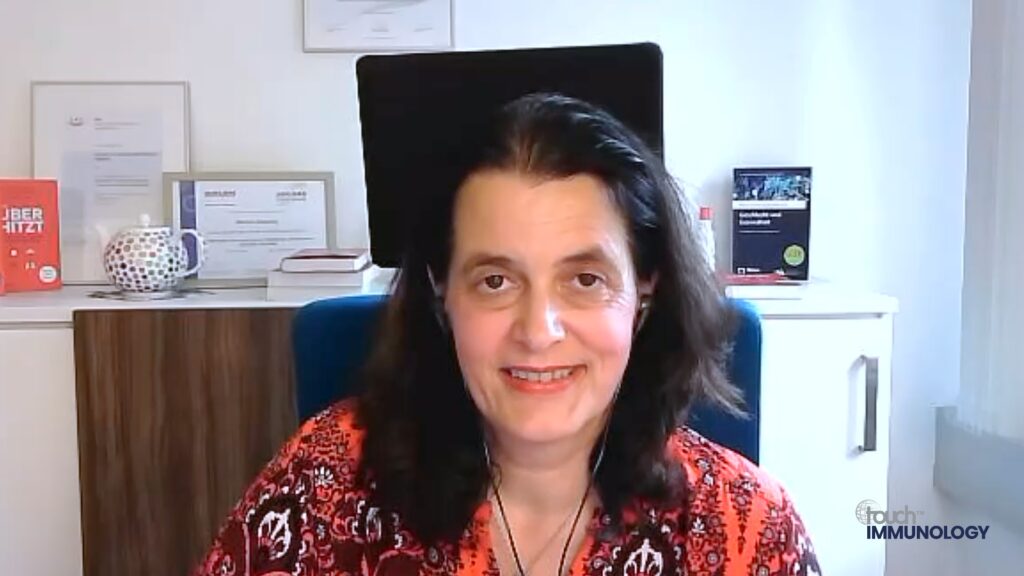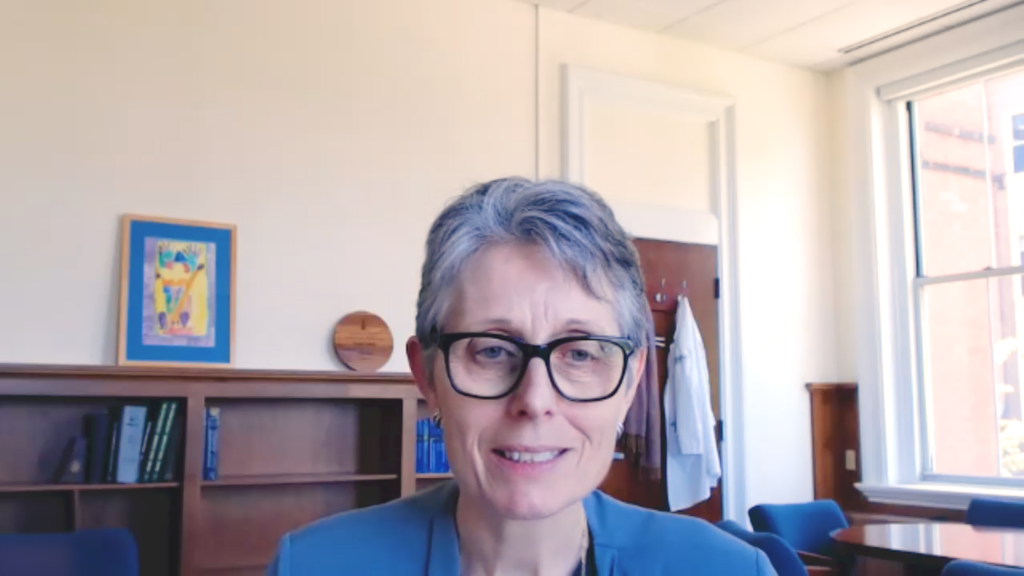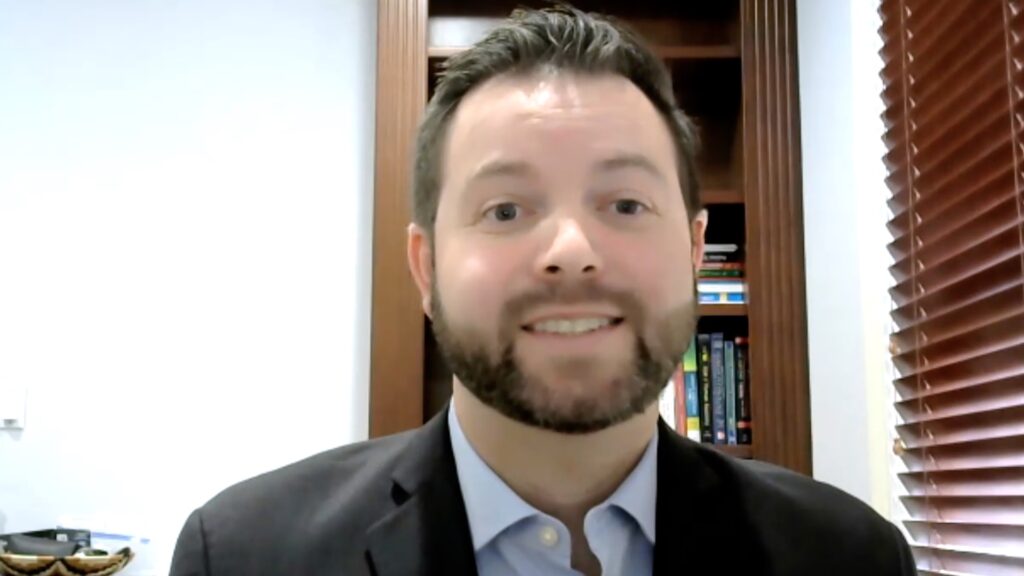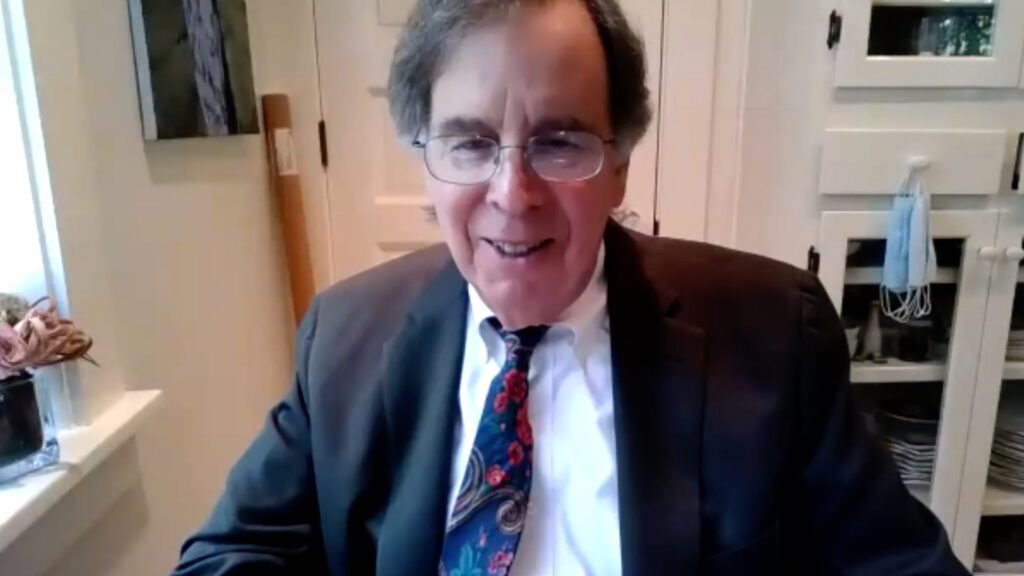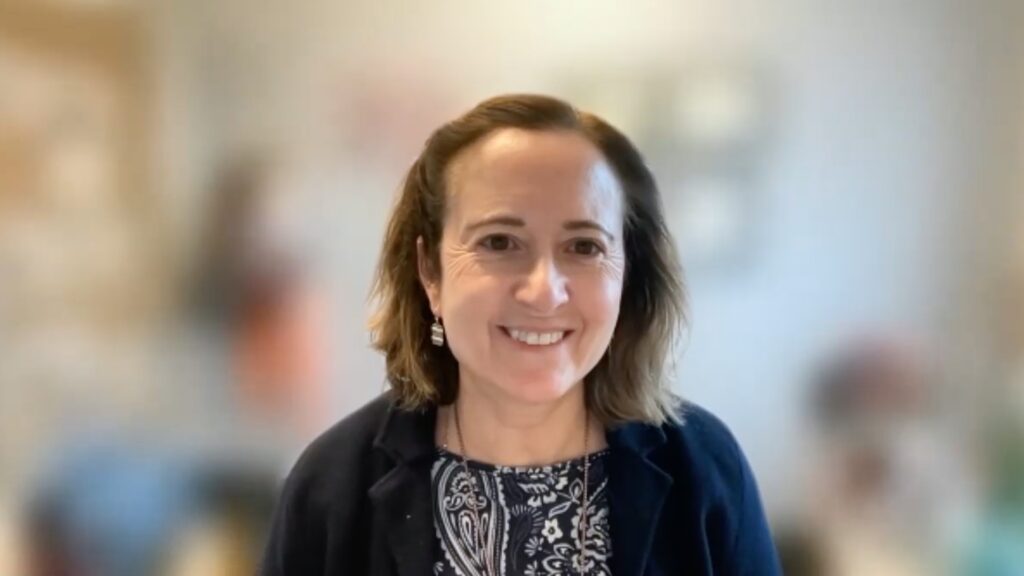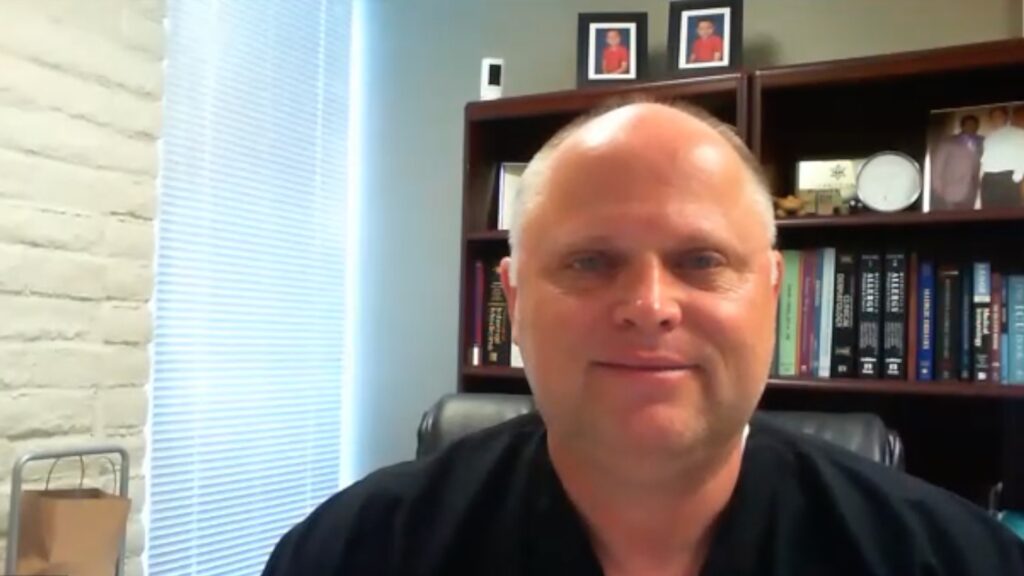Asthma is a chronic heterogenous disease, airway eosinophilic inflammation can be reduced with biologics; however, there remains many unmet needs in the treatment of type-2 low severe asthma. It was a pleasure to talk with our editorial board member, Prof. Antonio Spanevello (University of Insubria and Maugeri Care and Research Institute, IRCCS Tradate, Varese, Italy) to learn more around the latest updates in asthma treatment, including the phase 2 and 3 trials surrounding risankizumab and tezepelumab in severe asthma and the most promising targets under investigation.
‘Biologics in non eosinophilic asthma’ was presented at CHEST Congress 2022, 27-29 June 2022.
Questions
- Why do you think that risankizumab failed to show a clinical benefit in patients with severe asthma, and what does this mean for current and future research targeting cytokines? (0:29)
- Could you tell us a little about tezepelumab and the findings of the NAVIGATOR and PATHWAY clinical trials? (2:21)
- Which emerging molecular targets do you consider promising? (3:52)
Disclosures: Antonio Spanevello discloses consulting for GSK, Chiesi, MSD, Astrazeneca, Sanofi and Menarini; receiving grant/ research support from GSK and Chiesi; serving on advisory boards for GSK, Chiesi, MSD, Astrazeneca, Sanofi and Menarini; and receiving honoraria from GSK, Chiesi, MSD, Astrazeneca, Sanofi and Menarini.
Support: Interview and filming supported by Touch Medical Media Ltd. Interview conducted by Victoria Jones.
Filmed in coverage of the CHEST meeting 2022.


